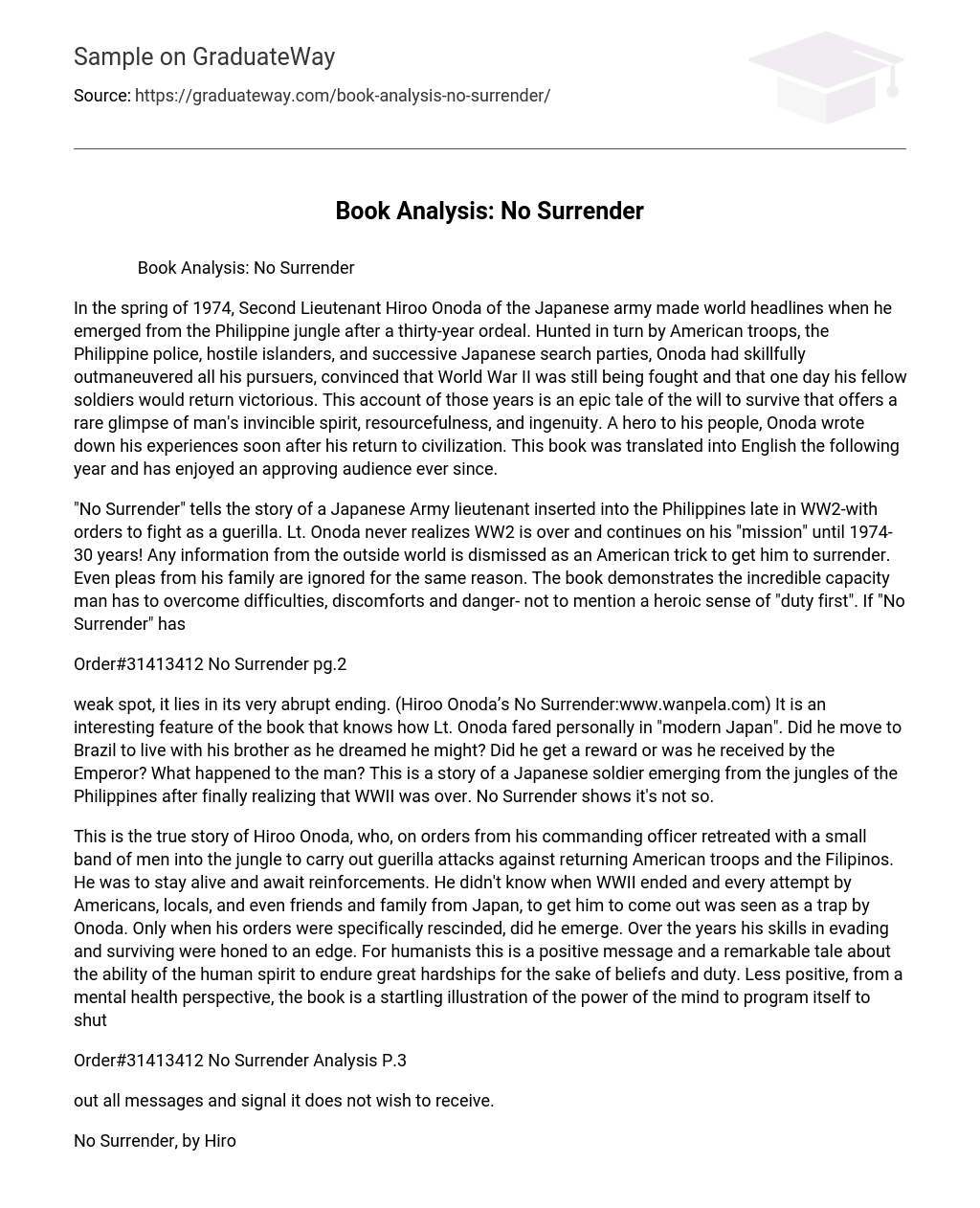In the spring of 1974, Second Lieutenant Hiroo Onoda of the Japanese army made world headlines when he emerged from the Philippine jungle after a thirty-year ordeal. Hunted in turn by American troops, the Philippine police, hostile islanders, and successive Japanese search parties, Onoda had skillfully outmaneuvered all his pursuers, convinced that World War II was still being fought and that one day his fellow soldiers would return victorious. This account of those years is an epic tale of the will to survive that offers a rare glimpse of man’s invincible spirit, resourcefulness, and ingenuity. A hero to his people, Onoda wrote down his experiences soon after his return to civilization. This book was translated into English the following year and has enjoyed an approving audience ever since.
“No Surrender” tells the story of a Japanese Army lieutenant inserted into the Philippines late in WW2-with orders to fight as a guerilla. Lt. Onoda never realizes WW2 is over and continues on his “mission” until 1974-30 years! Any information from the outside world is dismissed as an American trick to get him to surrender. Even pleas from his family are ignored for the same reason. The book demonstrates the incredible capacity man has to overcome difficulties, discomforts and danger- not to mention a heroic sense of “duty first”. If “No Surrender” has
Order#31413412 No Surrender pg.2
weak spot, it lies in its very abrupt ending. (Hiroo Onoda’s No Surrender:www.wanpela.com) It is an interesting feature of the book that knows how Lt. Onoda fared personally in “modern Japan”. Did he move to Brazil to live with his brother as he dreamed he might? Did he get a reward or was he received by the Emperor? What happened to the man? This is a story of a Japanese soldier emerging from the jungles of the Philippines after finally realizing that WWII was over. No Surrender shows it’s not so.
This is the true story of Hiroo Onoda, who, on orders from his commanding officer retreated with a small band of men into the jungle to carry out guerilla attacks against returning American troops and the Filipinos. He was to stay alive and await reinforcements. He didn’t know when WWII ended and every attempt by Americans, locals, and even friends and family from Japan, to get him to come out was seen as a trap by Onoda. Only when his orders were specifically rescinded, did he emerge. Over the years his skills in evading and surviving were honed to an edge. For humanists this is a positive message and a remarkable tale about the ability of the human spirit to endure great hardships for the sake of beliefs and duty. Less positive, from a mental health perspective, the book is a startling illustration of the power of the mind to program itself to shut
Order#31413412 No Surrender Analysis P.3
out all messages and signal it does not wish to receive.
No Surrender, by Hiroo Onada, is a very interesting book! It tells the story of a Japanese soldier during World War II who was sent by his superior’s to a secluded island in the middle of the Pacific Ocean on a mission. However, he and his party, due to the nature of their work, were not informed that World War II had officially ended.
-Reference Cited-
1. Hiroo Onoda’s No Surrender: Retrieved from: www.wanpela.com/holdouts/profiles/onoda.html on 29th May 2006





